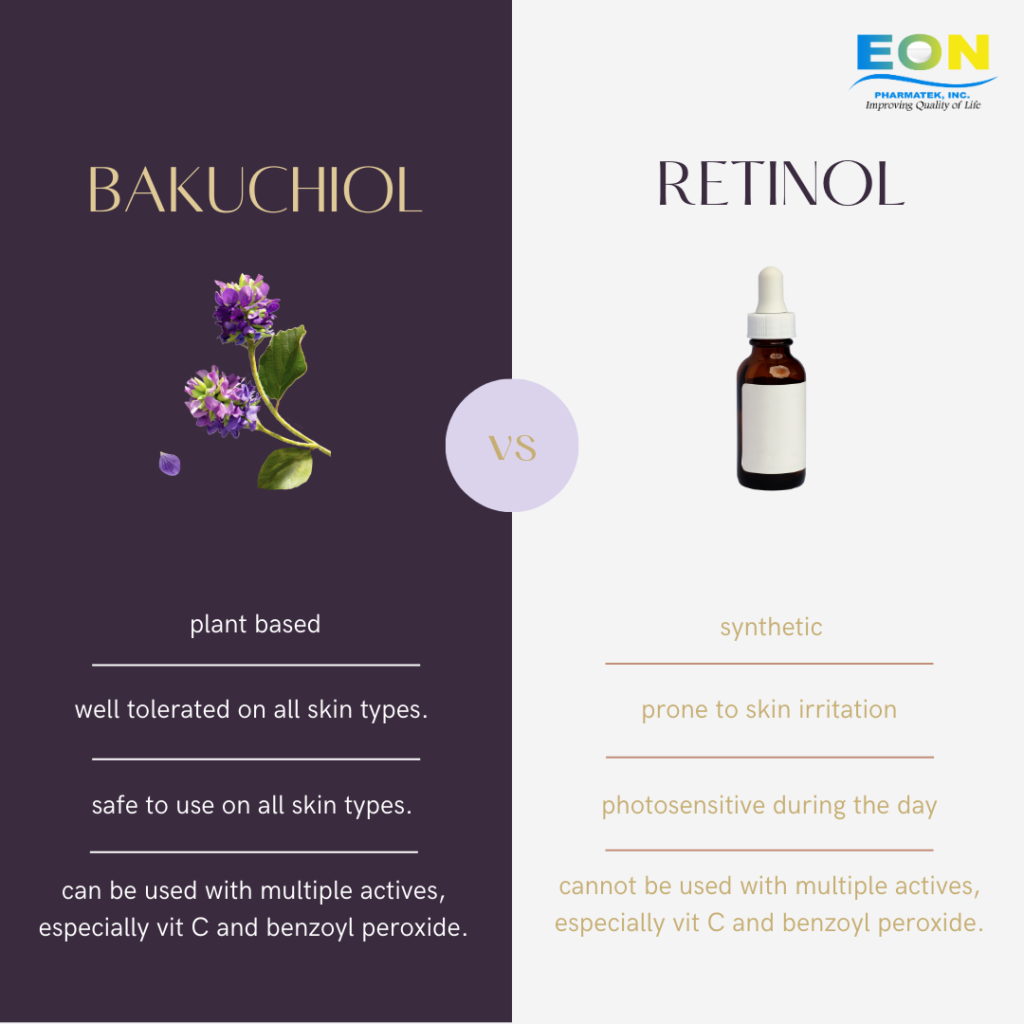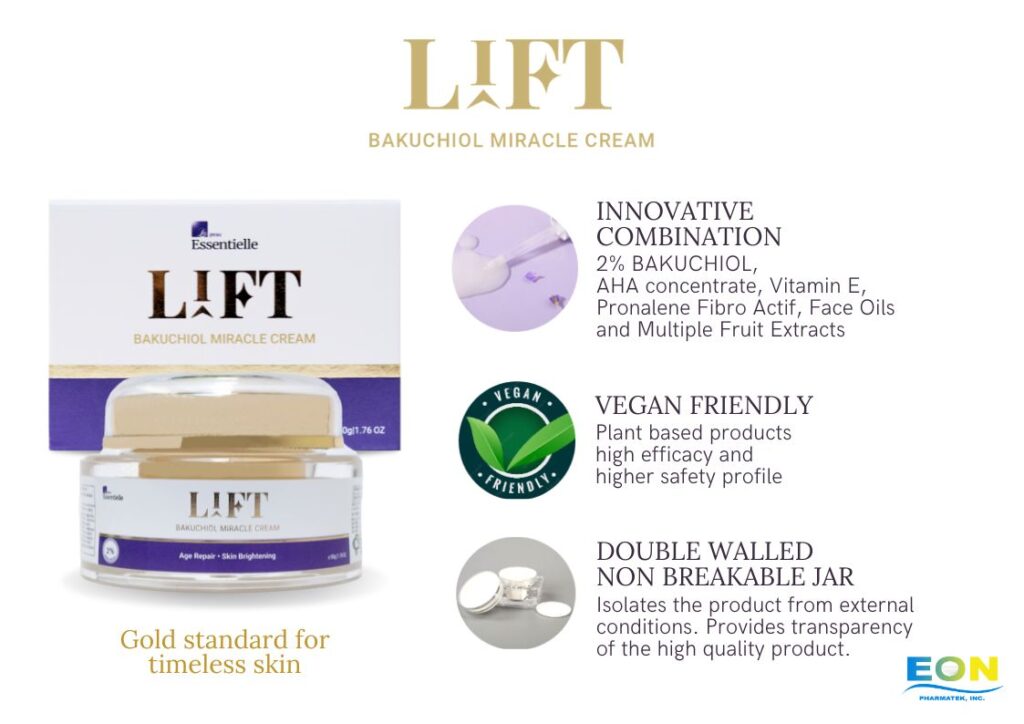.
.
.
Whether you’re an avid skincare expert or just dipping your toes, you’ve probably heard of retinol. This highly sought for ingredient has been known to produce miracles on your skin….unless you have sensitive skin. While many swear by retinol, those with sensitive skin know the treacherous adjustment period and possible irritation along the process.
However, with the recent introduction of Bakuchiol (link bakuchiol article) into the market, there are active discussions on its viability as a substitute. A 2019 clinical study comparing the effects of retinol and bakuchiol revealed that there was little to no difference in the results. The biggest difference between the 2 being their reactivity.
– No side effects for sensitive skin: Bakuchiol is proven to be gentler on the skin due to being naturally derived. With anti-inflammatory and antioxidant properties it prevents the redness and itchiness that comes when using retinol. There are currently little to no known side effects from using bakuchiol and is recommended for those with photo-damaged/sensitive skin .
.

.
– Sun exposure: It is usually recommended to use retinol only at night due to its sensitivity with sun exposure. Retinol accelerates the skin renewal process (through cell metabolism), however new skin is very delicate and hence more susceptible to UV rays. UV rays not only damage your skin, but nullify the effects of retinol. Bakuchiol on the other hand can be combined with any active agent and is not photosensitive. With all this said, it is still recommended to use SPF whenever out in the sun.
– Safe to use during pregnancy: Due to the possibility of chemicals being absorbed by the bloodstream and passing on to the baby, dermatologists advise against retinol during pregnancy. On the flip side, bakuchiol is not proven to be harmful but it is not proven to be safe either. Its natural properties mean less irritation and no side effects, but it is advised to consult your dermatologist before the use of either.
.
.

While there isn’t enough data out there to prove which of the 2 ingredients are superior, we do know that they provide similar results. If you’re looking for a gentler or more natural alternative to retinol, bakuchiol is your best bet.

.
.
[1] Dhaliwal, S., Rybak, I., Ellis, S.R., Notay, M., Trivedi, M., Burney, W., Vaughn, A.R., Nguyen, M., Reiter, P., Bosanac, S., Yan, H., Foolad, N. and Sivamani, R.K. (2019), Prospective, randomized, double-blind assessment of topical bakuchiol and retinol for facial photoageing. Br J Dermatol, 180: 289-296. https://doi.org/10.1111/bjd.16918
[1] Draelos ZD, Gunt H, Zeichner J, Levy S. Clinical Evaluation of a Nature-Based Bakuchiol Anti-Aging Moisturizer for Sensitive Skin. J Drugs Dermatol. 2020 Dec 1;19(12):1181-1183. doi: 10.36849/JDD.2020.5522. PMID: 33346506.




